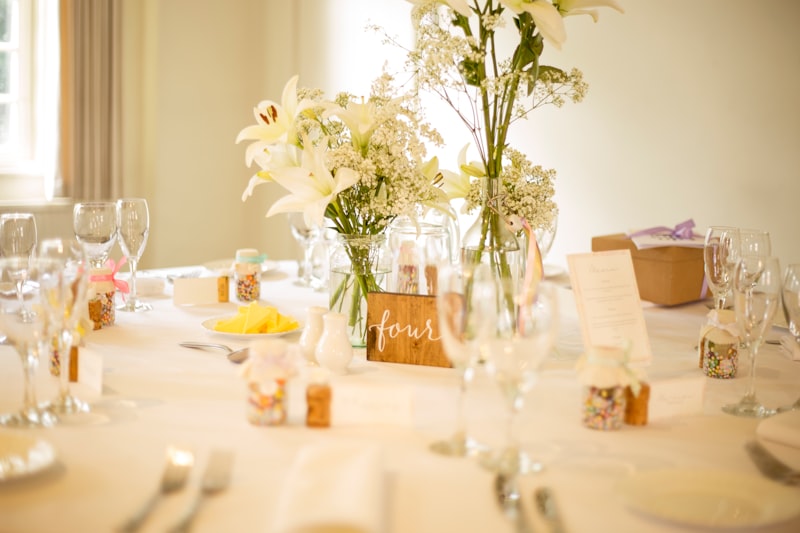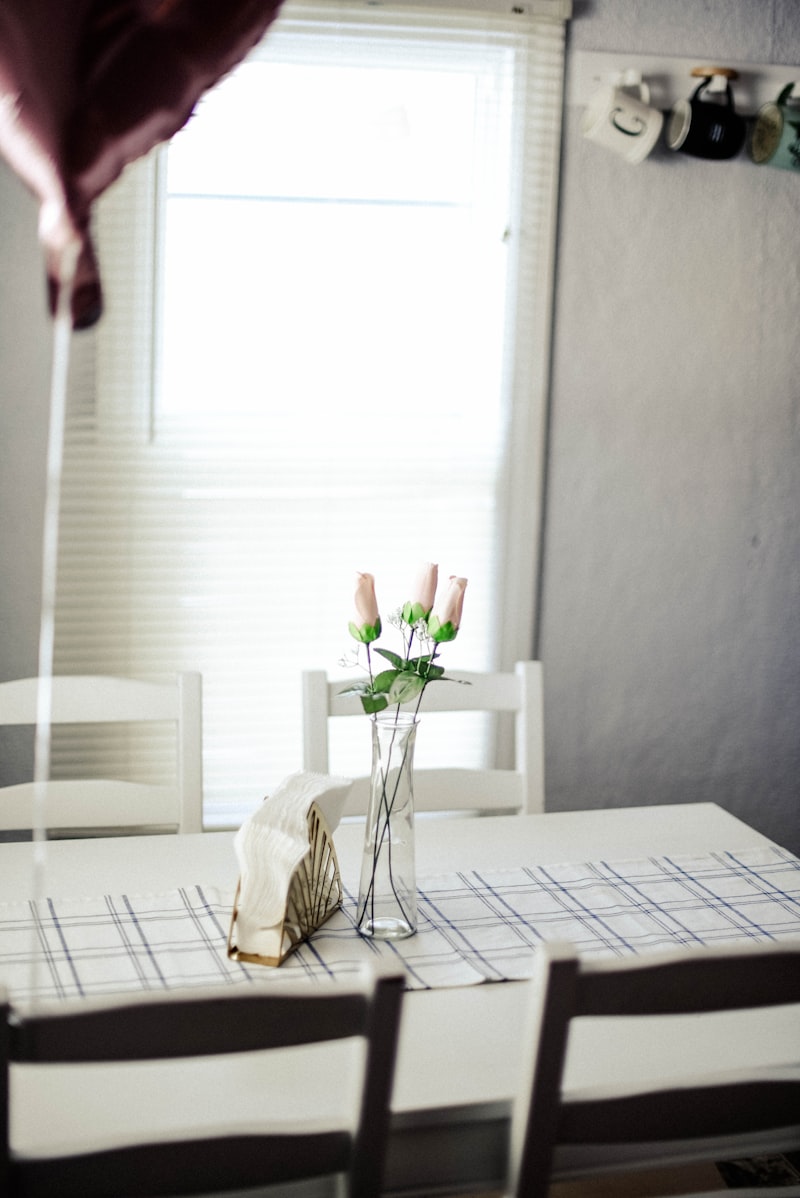When we talk about personal well-being, boundaries play a crucial role. They are the guidelines we set for ourselves to maintain a balanced life. Whether it’s saying ‘no’ to excessive work hours, setting limits on how much time we spend on social media, or establishing clear communication about our needs and feelings in relationships, boundaries empower us to take control of our lives.
One of the most compelling reasons to set boundaries is to preserve our mental and emotional energy. Just like a smartphone needs recharging, our minds and hearts need moments of rest and reflection. Without boundaries, we might find ourselves constantly stressed, overwhelmed, and unable to focus on what truly matters.
Boundaries also foster healthy relationships by creating mutual respect and understanding. When we communicate our boundaries effectively, we teach others how to treat us with dignity and empathy. It’s about drawing lines that enhance our connections rather than restrict them.
Moreover, boundaries encourage personal growth and development. They push us out of our comfort zones while ensuring we don’t stray too far into discomfort. Like a gardener prunes a plant to help it flourish, setting boundaries allows us to nurture our potential and cultivate meaningful experiences.
Guarding Your Peace: How Setting Boundaries Enhances Personal Well-Being
Setting boundaries means clearly defining what is acceptable and what is not in your interactions with others. It’s about drawing a line that protects your time, energy, and emotions from being unnecessarily drained. Imagine your boundaries as a fortress protecting your inner peace. When you establish healthy boundaries, you’re essentially taking control of your life and prioritizing your own needs without feeling guilty.
One of the key benefits of setting boundaries is reducing stress. By saying no to things that overwhelm you or agreeing to only what aligns with your priorities, you’re minimizing unnecessary stressors in your life. It’s like decluttering your schedule and mind—making room for things that truly matter to you.
Boundaries also foster better relationships. When you communicate your limits respectfully, you’re teaching others how to treat you. People around you start understanding your needs and respecting your personal space. This leads to more authentic connections built on mutual understanding and respect.
Moreover, setting boundaries boosts your self-esteem. It shows that you value yourself enough to protect your time and energy. It’s not about being selfish; it’s about self-care. When you consistently uphold your boundaries, you reinforce a positive self-image and cultivate healthier behaviors in yourself and those around you.
The Art of Self-Care: Why Boundaries Are Vital for Mental Health
Imagine your mind as a garden, teeming with vibrant flowers of thoughts and feelings. Without proper boundaries, this garden becomes vulnerable to trampling and overgrowth. Boundaries act like a fence, protecting your inner world from external pressures and preserving its beauty.
But what exactly are boundaries in the context of mental health? They’re the rules we set for ourselves and others about what’s acceptable and what’s not in our interactions, relationships, and environments. It’s about saying “yes” when it aligns with our values and needs, and confidently saying “no” when something doesn’t feel right.

Picture this: You’re at work, already swamped with tasks, and your boss asks you to take on another project. Setting a boundary here means recognizing your limits and negotiating a realistic workload, rather than succumbing to burnout.
Boundaries also extend to personal relationships. It’s about knowing when to take a step back from toxic friendships that drain your energy or asserting your need for alone time without guilt. By establishing these boundaries, you’re not only protecting your mental space but also nurturing healthier, more fulfilling connections.
In essence, boundaries are a form of self-respect and self-care. They empower you to prioritize your well-being without feeling selfish. When you respect your own limits, you teach others to respect them too, fostering mutual understanding and healthier dynamics.
So, the next time you feel overwhelmed or stretched thin, pause and reflect on your boundaries. Are they clear and well-defined, or could they use some reinforcement? Remember, setting boundaries isn’t about building walls; it’s about creating spaces where your mental health can flourish, allowing you to thrive in all aspects of your life.
From Stress to Serenity: Establishing Boundaries for Inner Harmony

Imagine your life as a garden. Without fences or boundaries, every passing animal would trample your delicate flowers. Similarly, without personal boundaries, external demands and pressures can trample your inner peace and mental clarity. Boundaries act as gentle protectors, shielding your mental and emotional space from unnecessary intrusion and chaos.
Setting boundaries starts with understanding your own limits and needs. It’s about recognizing when you feel overwhelmed, drained, or stretched too thin. Ask yourself: What situations or people leave me feeling stressed or depleted? Identifying these triggers is the first step toward drawing effective boundaries.
Once you identify your triggers, the next step is to communicate your boundaries clearly and assertively. This isn’t about building walls but rather about creating healthy spaces where you can thrive. Just like a good neighbor, clear boundaries ensure mutual respect and understanding in your relationships.
Remember, setting boundaries isn’t selfish—it’s an act of self-care. It allows you to conserve your energy for the things that truly matter to you. Just as a river flows smoothly when its banks are intact, your life finds harmony when you establish and maintain clear boundaries.
Boundaries also help you prioritize your time and commitments. By defining what is acceptable and what isn’t, you gain the freedom to focus on activities that bring you joy and fulfillment. It’s like tidying up your room: once you declutter and organize, you create space for creativity, relaxation, and genuine connections.
Establishing boundaries is a powerful tool on your journey toward inner harmony. It’s about respecting yourself enough to protect your time, energy, and emotional well-being. When you set clear boundaries, you cultivate a serene inner landscape where stress has little room to take root. So, take a moment to reflect: Are your boundaries serving you well?
Balancing Act: Maintaining Healthy Relationships Through Boundaries
Imagine your boundaries as the property lines of your emotional and mental space. Just like you wouldn’t want someone trespassing on your land without permission, boundaries ensure that others respect your personal limits and values. They define what is acceptable and unacceptable behavior in your relationships, creating a framework for mutual respect and understanding.
Setting boundaries isn’t about building walls or shutting people out; it’s about creating clear guidelines for healthy interaction. For example, in a friendship, you might set a boundary around communication—letting your friend know that you appreciate honesty and prefer direct conversations rather than gossip or hearsay. This boundary helps maintain trust and authenticity in the relationship.
In romantic relationships, boundaries become even more crucial. They establish the space needed for each partner to maintain their individuality and self-respect. A boundary could involve agreeing on personal space and alone time, ensuring that both partners feel balanced and respected in the relationship’s dynamics.
Boundaries also play a significant role in family dynamics. They help navigate the complexities of familial relationships by clarifying roles, responsibilities, and expectations. For instance, a boundary with a parent could involve setting limits on advice-giving, allowing for a more supportive and less intrusive parent-child relationship.
The key to setting effective boundaries lies in clear communication and consistency. It’s about expressing your needs and limits assertively yet respectfully, ensuring that both parties understand and honor each other’s boundaries. This mutual respect strengthens the relationship and fosters a healthier and more fulfilling connection overall.
Empowerment through Limits: How Boundaries Boost Self-Esteem
Have you ever considered that setting boundaries could actually enhance your self-esteem? It might seem counterintuitive at first, but boundaries are like personal guardrails that guide us through life’s journey, ensuring we stay on track and remain true to ourselves.
Think of boundaries as the fences around your emotional garden. They define what is acceptable and what isn’t in your relationships, work, and personal space. By clearly marking these limits, you create a space where you feel safe and respected. This sense of safety forms the foundation of healthy self-esteem.
Let’s break it down further. When you set boundaries, you are essentially communicating your needs and values to the world. This act of self-advocacy sends a powerful message: that you deserve to be treated with dignity and that your feelings matter. Over time, this reinforcement builds a positive self-image and boosts your confidence.
Imagine a highway without lanes or guardrails. It would be chaotic and dangerous to navigate. Similarly, without boundaries, life can feel overwhelming and unpredictable. Boundaries provide structure and predictability, allowing you to focus your energy on what truly matters to you.
Moreover, boundaries teach others how to treat you. They are a way of saying, “This is who I am, and this is how I expect to be treated.” People around you learn to respect your limits, which fosters healthier, more fulfilling relationships. This mutual respect further bolsters your self-esteem, as you surround yourself with individuals who value and appreciate you.
Protecting Your Energy: The Role of Boundaries in Emotional Health
Imagine your emotional energy as a precious resource, much like water in a reservoir. Without boundaries, it’s like having holes in the reservoir – your energy trickles away, leaving you feeling depleted and drained. Boundaries act as the dam that protects this reservoir, ensuring that your energy is conserved and used wisely.
But what exactly are boundaries in the context of emotional health? They are the limits we set with others based on our personal values, needs, and preferences. These limits can be physical, emotional, or even digital, depending on the situation. For instance, saying “no” to a request that overwhelms you is a form of setting a physical boundary. Similarly, not engaging in gossip or negative conversations sets an emotional boundary that preserves your peace of mind.

Boundaries also help define our relationships. They establish mutual respect and create a safe space where both parties can thrive without feeling suffocated or disregarded. Just as fences mark property lines, emotional boundaries define where you end and others begin. This clarity fosters healthier connections and reduces the likelihood of misunderstandings or conflicts.
Moreover, maintaining boundaries isn’t about building walls or shutting people out. It’s about honoring your own needs while also respecting the needs of others. It’s a delicate balance that requires self-awareness and assertiveness. When you establish healthy boundaries, you’re not only protecting your emotional energy but also nurturing your self-esteem and overall well-being.
Beyond Burnout: How Setting Boundaries Prevents Mental Exhaustion
Picture this: you’re juggling work, family, and personal time without clear limits. It’s like being a circus performer on a high wire without a safety net. Without boundaries, your mental energy dissipates like air leaking from a balloon—slowly at first, then all at once.
Boundaries act like guardrails on a winding mountain road. They keep you from careening off into the abyss of burnout. By defining what’s acceptable and what’s not in your life—whether it’s saying no to extra projects at work or carving out guilt-free me-time—you regain control over your mental well-being.
Imagine a garden hose without a nozzle. It gushes water in all directions, never quite reaching its intended target efficiently. That’s how mental energy behaves without boundaries—scattered and ineffective. But when you install a nozzle, directing the flow becomes precise and purposeful. Boundaries channel your mental energy toward what truly matters, enhancing productivity and satisfaction.
Have you ever noticed how saying yes to everything eventually leaves you feeling depleted? It’s like trying to fuel your car with water instead of gasoline—it simply doesn’t work. Boundaries help you conserve your mental fuel for the tasks and people that deserve it most, ensuring you can go the distance without burning out.
Think of boundaries as your personal energy reserves. Just as a wise investor diversifies their portfolio to safeguard against market volatility, you diversify your energy investments by setting boundaries. This way, you protect your mental capital from depletion and safeguard your overall well-being.
Frequently Asked Questions
What are the signs that I need to establish better boundaries
Learn about the signs that indicate the need to establish better boundaries in your life.
How do boundaries enhance mental and emotional health
Learn how setting boundaries can improve your mental and emotional well-being by defining limits, reducing stress, and fostering healthier relationships.
What are practical strategies for setting effective boundaries
Learn practical strategies to set effective boundaries to enhance personal well-being and relationships.
Why are boundaries important for personal well-being
Learn why setting boundaries is crucial for personal well-being. Understand how clear boundaries promote healthier relationships, reduce stress, and empower individuals to prioritize their needs.
How can setting boundaries improve relationships with others
Learn how setting clear boundaries can enhance relationships by fostering respect, communication, and mutual understanding. Discover practical ways to establish and maintain healthy boundaries to cultivate more fulfilling connections with others.


